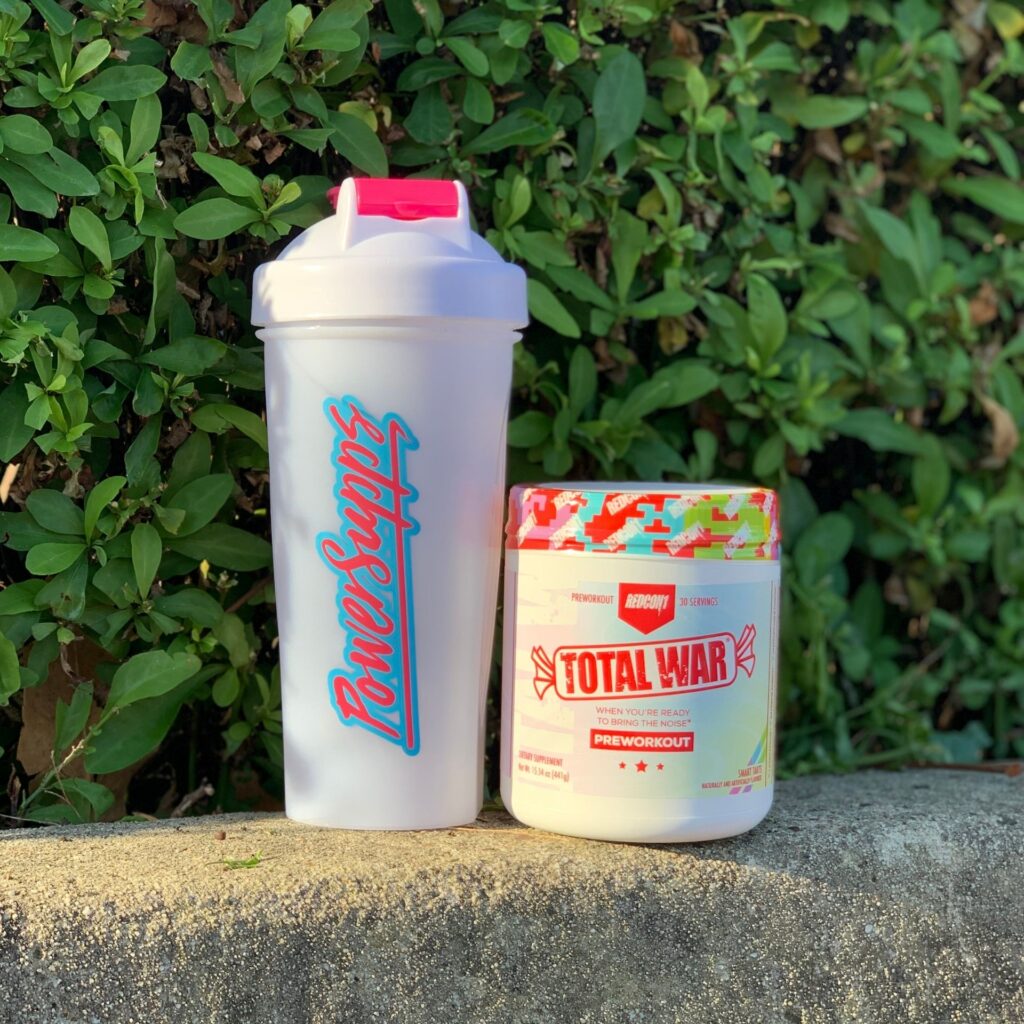Supplements
Pre Workout Side Effects & How to Avoid Them
Overview
Pre-workout supplements are some of the most popular and commonly used sports supplements in the world. They provide users with an increase in physical and mental performance. When using these products there is a chance that side effects may occur. They may impact the workout or even on your health and well-being in a minor way. This article has been written to provide you with some information on these potential side effects and ways that you can mitigate them from occurring. Let’s dive in and check out the possible side effects of pre-workout supplements.
Possible Side Effects
Poor Sleep
Side Effect Details
Most pre-workout supplements contain caffeine or a blend of stimulants. Some come in small doses and others much higher. The main goal is to boost energy before a training session. However, all these stimulants can have a potentially detrimental impact on sleep if being consumed in excess or being consumed at inappropriate times. Of all the pre-workout side effects, impacting someone’s ability to achieve a good night’s sleep is the most common.
For example someone might have a coffee in the morning, an energy drink while they are at work and then when it comes time to train, they might take a high-stimulant pre-workout. Using these stimulants altogether results in a large caffeine total for the day. This can overstimulate the nervous system and prevent someone from being able to relax and go to sleep. If you catch yourself lying in bed staring at the ceiling, it could be due overall overconsumption of caffeine.
Another factor when it comes to caffeine use involves the timing of the caffeine rather than the overall amount consumed. If someone is consuming high-stimulant pre-workout at night, there is a chance it might negatively affect their sleep. Some people can take a pre-workout close to bed time and not suffer a poor night’s sleep. Lucky them!!!
The half life refers to the time that the body takes to eliminate one half of the total amount. In the case of caffeine, the half life is about 5-6 hours. That means that if you are taking high stimulant pre-workout formulas that contain 500mg of caffeine at 5pm, there will still be 250mg of caffeine in your body at 10pm, and this is the very reason why caffeine can have a bad impact on sleep.
How to Avoid Poor Sleep
There are a few things that you can do to avoid a poor night’s sleep when using a pre-workout supplement. Depending on your sensativity to caffeine there are some general rules in place. If you are using caffeinated pre-workouts, it is wise to use it no later than 5 hours before bed. If you plan on going to sleep and if you are using high-stimulant pre-workout supplements (400mg+ of caffeine per serve) you may want to extend this to 6-7 hours. However some people can get away with simply using lower-stim pre-workout supplements that contains the same amount of caffeine as a coffee worth.
Another option is to use non-stim pre-workout supplements when you are doing a night time training session. Save the hard-hitting pre-workout supplements for your midday or morning workouts. Non-stim formulas still have all the ingredients that increase blood flow, muscle endurance and focus, just without the caffeine..
Gastrointestinal Distress
Side Effect Details
Many people will use their morning cup of coffee to get their stomachs moving. Pre-workout supplements can sometimes have this effect in an exaggerated way. Certain pre-workout supplements may contain a specific blend of ingredients that do not agree with your stomach. This can result in diarrhoea or stomach cramps . Each body reacts differently to pre-workout supplements so it is important to gather your own personal data. Every individuals body reacts to each formula differently, especially if you have a sensitive stomach. If your pre-workout supplements are causing absolute havoc on your intestinal wall, it is clear that something needs to change.
Episodesof gastrointestinal distress after using pre-workout supplements can be due to many things. An increased dose of artificial sweeteners, sodium bicarbonate or magnesium citrate are common causes. Some manufacturers also use sugar alcohols to flavour their pre-workout supplements. An excessive consumption of sugar alcohols can have a laxative effect on the body. It can also be due to the fact that the caffeine has caused the body to stimulate the process that leads up to evacuating one’s bowels, similar to how a morning cup of coffee tends to speed things along.
Some pre-workout supplements can cause individuals to go to the toilet fairly quickly. There is nothing to be worried about and in fact is quite normal. However if taking pre-workout supplements is causing diarrhoea stomach cramps frequently, it is important to cease use of that particular product. Follow up with a healthcare professional if negative effects do not resolve after stopping use.
How to Avoid Gastrointestinal Distress
There are a few things that you can do to avoid experiencing gastrointestinal issues when taking a pre-workout supplement. The first of which is to add more water than directed by the manufacturer. This will dilute the formula which will assist your stomach with breaking it down. Many pre-workout formulas advise that you use 200-300ml of water however if you are experiencing GI issues, boost this up to 400-500ml to see if this helps. Another helpful hint is to sip your pre-workout supplements slowly over 10 to 15 minutes. Do not dry scoop it or gulp it all down in 10 seconds. This avoids exposing your stomach to a bolus dose of strong ingredients and instead lets these ingredients digest accordingly.
Dehydration
Side Effect Details
Dehydration refers to when our bodies lose water acutely through sweat or diarrhoea. This results in fatigue, headaches, acute weight loss and an impairment to mental focus. Dehydration occurs when people are sick and losing fluid through vomiting or diarrhoea or when undertaking high intensity exercise training and losing fluid through sweat without drinking enough water. This is one of the less common side effects from pre-workout supplements. However it is one that you do not want to miss identifying in yourself or others. Dehydration can occur because some ingredients in pre-workout powder can pull water out and excrete either by design or as a by product of many ingredients reacting together.
How to Avoid Dehydration
We have a few different tips to avoid dehydration depending on how the dehydration came about. Pre-workout supplements have detailed labels so it is a good idea to identify which ingredients may be causing this. The other important aspect is to stay well hydrated by drinking plenty of water throughout the day. Some pre-workout supplements can cause you to urinate and when that is combined with sweating during a training session. This can result in a net loss of water which can lead to dehydration. Setting a water intake goal is very important and can reduce the possibility of dehydration.
Headaches/Migraines
Side Effect Details
Headaches and migraines are multifactorial experiences that can occur for a range of different reasons. For some people using pre-workout supplements can trigger one of these to set in. This can be due to dehydration occurring or blood vessels in the brain experiencing higher blood pressure. If dehydrated, this changes the amount of fluid surrounding the brain which can also lead to headaches occurring. This is obviously not something that anyone wants to experience, especially if you are having a morning or lunchtime workout. Headaches can cause pain, diminish energy levels and impact our ability to complete everyday tasks so they are definitely something we want to avoid.
How to Avoid Headaches/Migraines
Once again, the supplement industry is getting better at disclosing all ingredients contained in their products. Identifying ingredients that consistently cause headaches or migraines and trying to avoid these is a great idea. As mentioned, headaches and migraines can sometimes come on as a result of dehydration. It is important to consume water through the day to avoid these , not to mention it is important to drink water for your overall health. During your workouts it is also a good idea to breathe properly during exercises. This can avoid letting too much pressure build up in your head when pushing hard during a set.
Hypertension
Side Effect Details
Hypertension, or better known as high blood pressure, can occur after taking pre-workout supplements. This is a result of ingredients which aim to increase blood pressure as the blood vessels in the body expand. Increasing blood flow is important as we try to increase muscle growth however high blood pressure issues are something we want to avoid. Ingredients like agmatine sulfate and citrulline malate aim to raise blood pressure slightly. They do this by shuttling blood towards working muscles to help with nutrient uptake.
How to Avoid Hypertension
The above mentioned ingredients are not present in all pre-workout supplements. If you have high blood pressure it might be a good idea to avoid amino acid ingredients that increase nitric oxide levels. Many pre-workout supplements however will contain “pump” ingredients and may feature an amino acid like citrulline malate and the side effects may be dangerous for someone with hypertension. Therefore, it is important to consult your doctor if this is the case and ask if the side effects of pre-workout are enough to warrant not taking pre-workout supplements with those ingredients.
Paraesthesia
Side Effect Details
This is more commonly known as the tingly or prickly sensation that is often experienced after taking most pre-workout supplements. This is due to the ingredient, beta alanine. Pre-workouts commonly contain beta alanine because it is able to enhance exercise endurance. This helps to push hard right up until the final set of your exercise program. The tingly and prickly sensations are nothing more than a harmless nervous system reaction. Side effects like this can occur over a wide time frame and generally hit people differently depending on their tolerances. The effects mentioned are not harmful but it is understandable that you may still want to avoid.
How to Avoid Paraesthesia
As mentioned already, the ingredients in pre-workout are going to be where you see if the formula has beta alanine or not which will determine if this sensation may occur. If the side effects of tingles and prickles are too much to handle and you are very sensitive, you may want to avoid beta alanine. You could also assess your tolerance by consuming the ingredient extremely slowly. From there you can work out what quantity you are able to tolerate without experiencing too many tingles. It is important to be focused during your workout so if too many tingles are getting in the way of a good quality session, it is a good idea to make a change.
Summary
If your pre-workout supplement is causing some funky side effects that are causing more harm or annoyance than good, it is a good idea to make a change. This is especially important if you notice that it is negatively impact your workout. This is where we stimulate muscle growth and make fat loss happen. A pre-workout supplement should improve and compliment your workout, not hinder it. If using a pre-workout is holding you back, it is simply not worth it. We hope that you have learnt more about the potential side effects that pre-workout can cause as well as tips to avoid them from happening. As always, if you are in the market for a great pre-workout, there is no better place to look than right here at Power Supps!
Disclaimer: Power Supps is not a medical organisation so the information in this article should not be taken as medical advice as it is simply an explanation of side effects that are reported by customers. If you are experiencing symptoms that continue after intervention or negative impacts on your health or well-being, please consult a health care professional.

